Yevgeny Prigozhin, ex-convict, restaurateur for St Petersburg’s criminal elite and proprietor of the largest private army in Africa, is the thread that connects the butchery in Ukraine to that of Sudan and Africa’s surrounding conflict zones.
Multiple credible reports this week indicated that Prigozhin’s Wagner forces based in Bangui in the Central African Republic have started supplying the Rapid Support Forces (RSF) in Sudan with weapons and ammunition via an airfield in the western province of Darfur.
Pictures on social media showed RSF troops holding newly acquired Man-Portable Air Defence Systems (MANPADS) – surface-to-air missiles whose purpose is to take down the government’s crucial advantage in the fight – its air force. The fresh ammunition is a lifeline in a war where the only limitation to the fighting is the finite number of bullets.
Darfur is the stronghold of Prigozhin’s ally, Mohamed Hamdan Dagalo, better known as Hemedti, and has been the scene of fighting second only in intensity to the battles in Khartoum.
It is somewhat ironic that while his forces were opening a pipeline of weapons to Hemedti, Prigozhin was complaining that his Wagner troops in Ukraine were being starved of ammunition by the Russian army. He even threatened to abandon the Ukrainian front unless his troops were properly supplied.
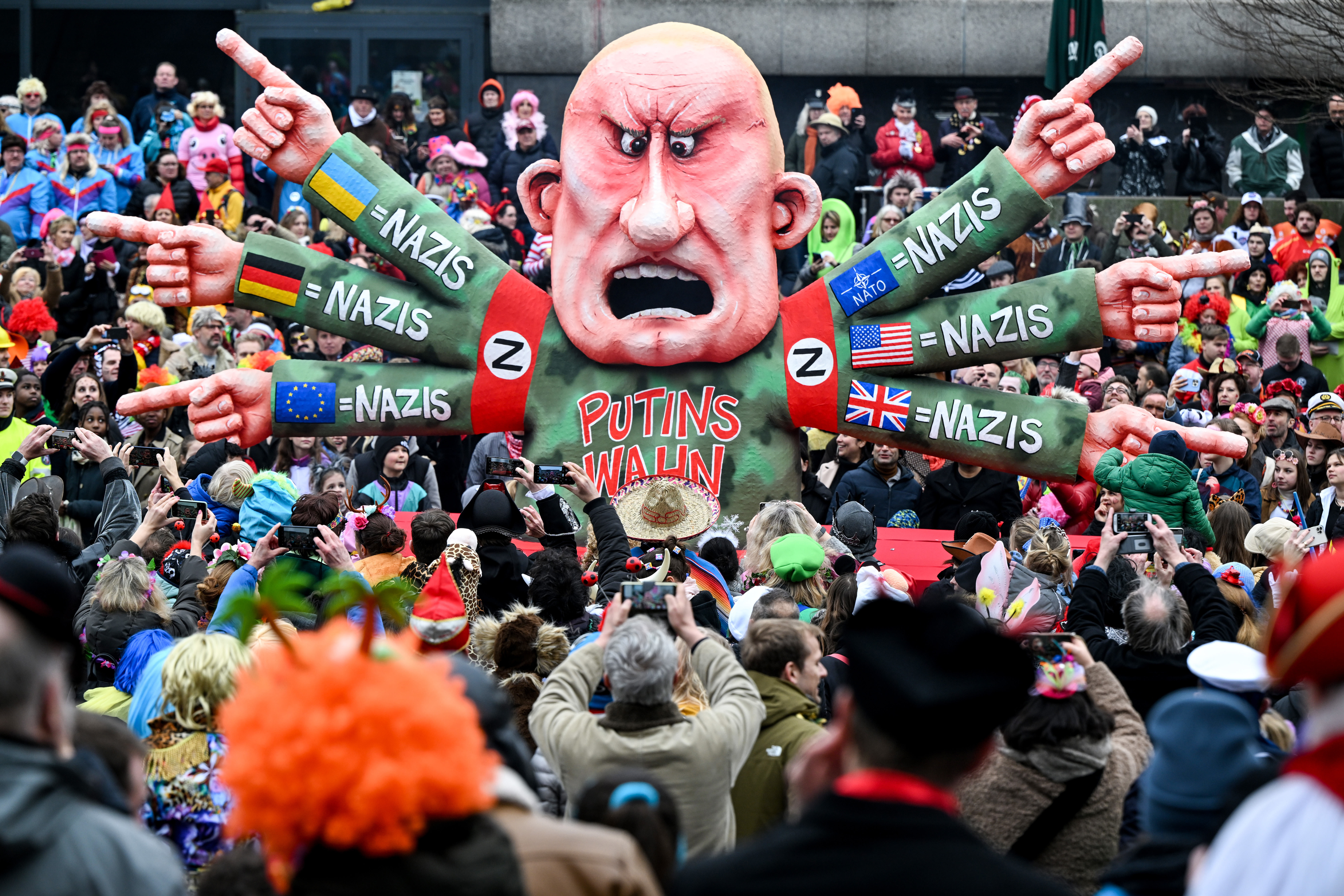
North Rhine-Westphalia, Duesseldorf: A motto float with the inscription ‘Putin’s delusion’ shows the leader of the Russian mercenary force Wagner, Yevgeny Prigozhin, referring to Nazis all over the world. Dusseldorf was hosting its first Rose Monday parade in three years. (Photo: Federico Gambarini/dpa Picture-Alliance via AFP)
Wagner forces have taken huge losses in the assault on the now wasted city of Bakhmut whose capture holds dubious strategic value and whose residents fled the carnage months ago. US National Security Council spokesperson John Kirby claimed this week that Russia had suffered 100,000 casualties, including 20,000 deaths, in the past five months of fighting, at least half of whom were Wagner mercenaries.
#Sudan 🇸🇩: Fighters of the Rapid Support Forces (#RSF) released a video from the Sudanese Presidential Palace located in #Khartoum.
Fighters appear to be armed with rather noteable Chinese FN-6 (CH-SA-10) MANPADS and ex-#Saudi 🇸🇦 G3A4 rifles brought from #Yemen 🇾🇪. pic.twitter.com/c6isKnP8TP
— War Noir (@war_noir) May 3, 2023
Even if those numbers are exaggerated, the slaughter is hard to get one’s head around. Russia has thrown wave after wave of fighters into a merciless show of determination but has little to show for all those lost lives.
Now Prigozhin is warning that Ukraine wants to take back the dead city and to outflank the Russians in Bakhmut.
Read more in Daily Maverick: Wagner Group leads Russia’s African front in cold war with the West
Prigozhin’s almost clownish volubility exposed not only the widening breach between him and Russia’s regular military, but positioned him to say that it’s not his fault if the whole thing fails.
Prigozhin is awaiting the Ukrainian counteroffensive, which is believed to be coming in the next few weeks, with trepidation, warning: “A bloody battle is ahead.”
Though the Russians have spent months digging in and entrenching their positions in the east, Ukraine will be attacking with an armoury of new weapons such as German Leopard tanks, while its elite forces have been retrained on brand-new US and European equipment.
Ukraine is playing for a win; Russia is playing for a draw.
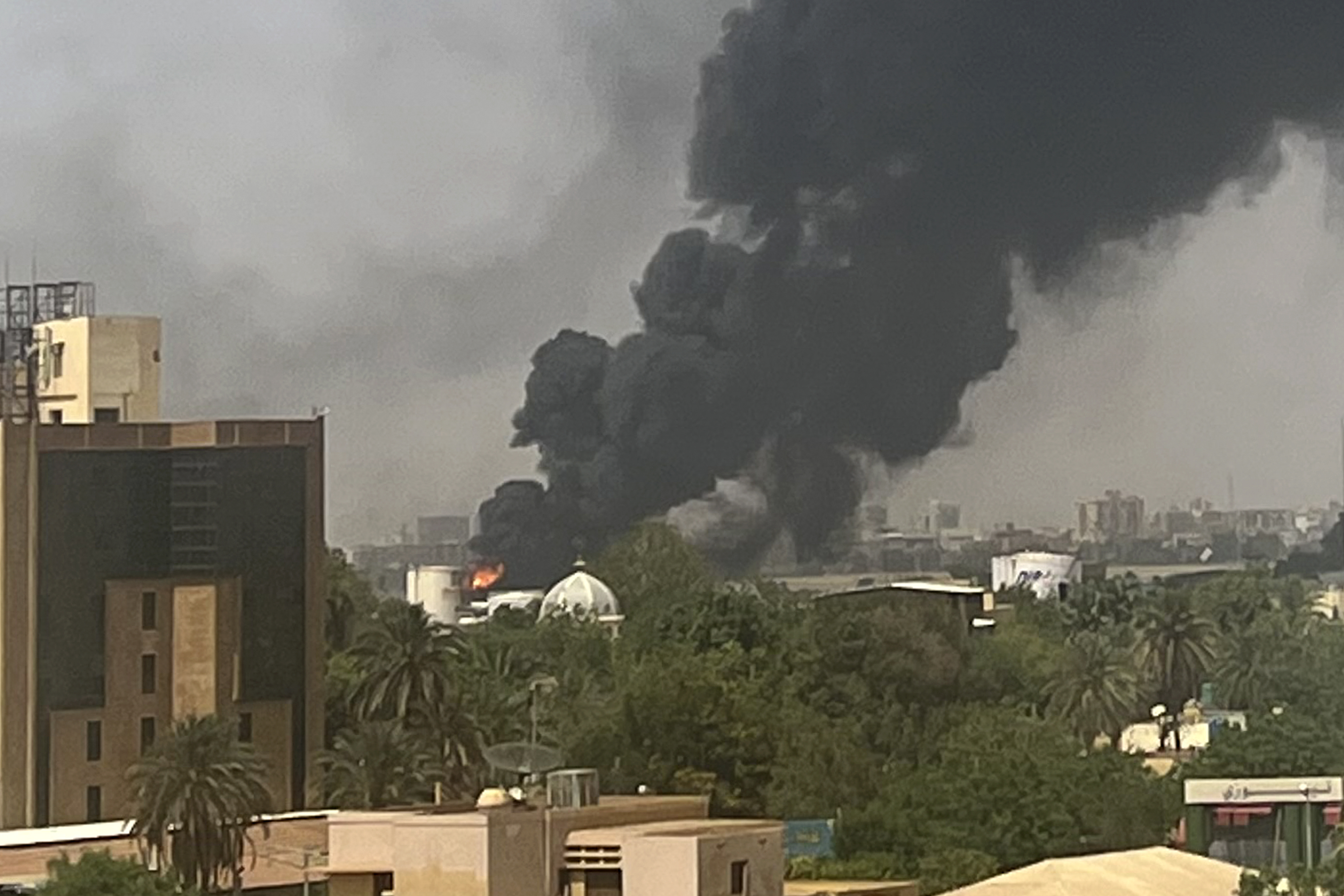
Smoke billows above residential buildings in Khartoum on 16 April 2023 as fighting in Sudan raged for a second day in battles between rival generals. (Photo: AFP)
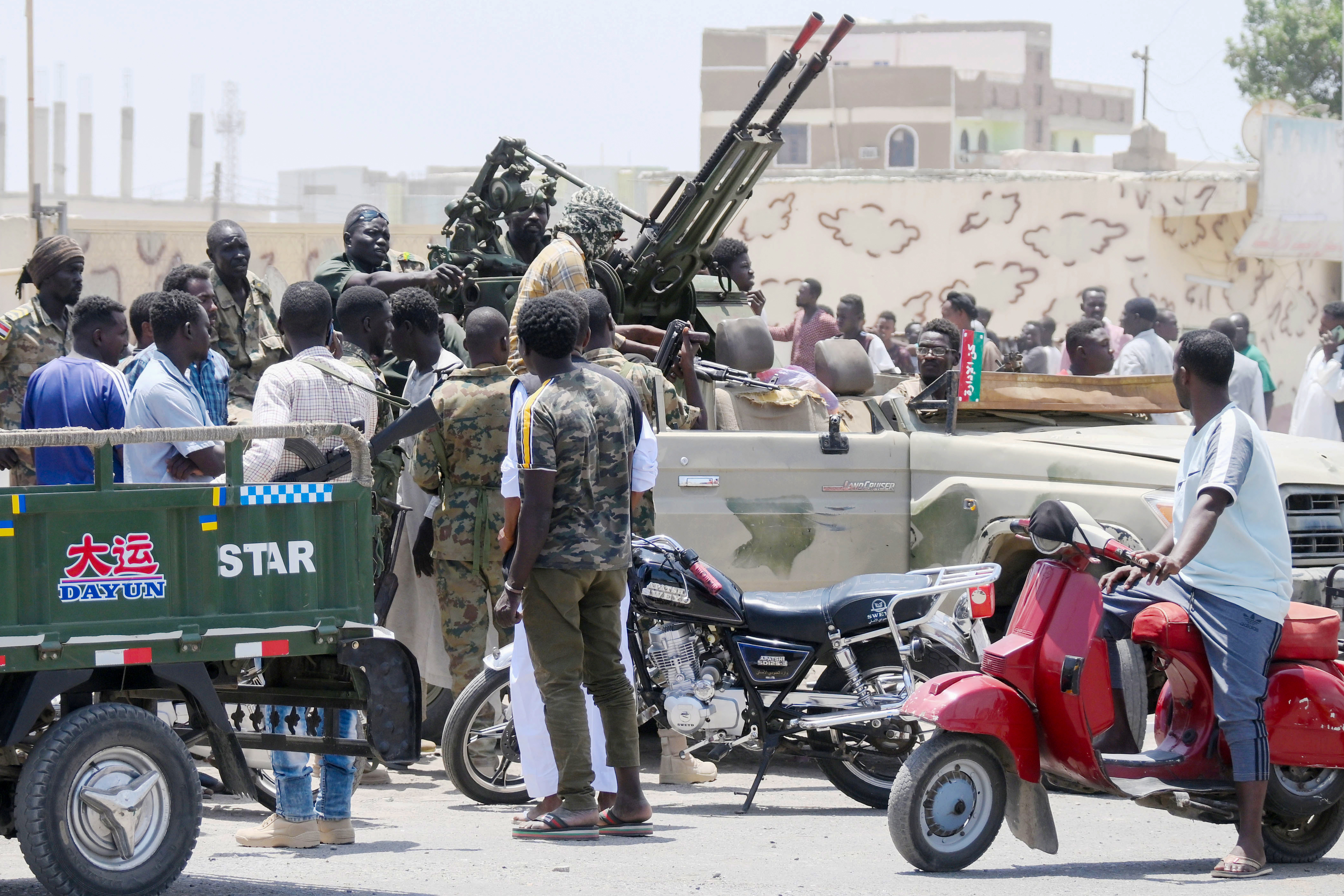
Sudanese greet soldiers loyal to army chief Abdel Fattah al-Burhan in the Red Sea city of Port Sudan on 16 April 2023. (Photo: AFP)
Wednesday’s alleged attempted assassination of Vladimir Putin via a drone attack on the Kremlin has been dismissed by many as a poorly staged false flag operation and a diversion ahead of Russia’s 9 May Victory Celebrations in which there won’t be much to celebrate. It has signalled a certain level of desperation in Moscow.
The seriousness of the situation can be seen in reports that Gazprom, the Russian state-owned energy corporation, has not only created its own paramilitaries, but that these “volunteer battalions” have been deployed to the front. Some have even been captured by the Ukrainians.
Read more in Daily Maverick: Russia’s Wagner chief warns of frontline collapse if forced to retreat from Bakhmut
“It is becoming more and more difficult for the regular army to get conscripts, so they are using them as volunteers,” Mikhail Krutikhin, a Moscow-based energy analyst, told Deutsche Welle. “They were told they were going to guard oil and gas assets, but they ended up on the front line.”
A veteran former member of Wagner told Daily Maverick that apart from the big PMCs Wagner and Patriot there were now at least 17 private armies in Russia, including the Chechens, with oligarchs and corporations forming their own militias.
Read more in Daily Maverick: Russia’s Wagner mercenaries control more than 80% of Bakhmut, says leader
Krutikhin said these armies were being created to protect the private interests of “very rich people” in case of the chaos that would ensue from an economic and military defeat.
Thriving warlords
For different reasons both Russia and the war zones in Africa are witnessing a plethora of private military companies.
Once again what connects them is Wagner, which now has offices and operations in 14 African countries.
The loss of the monopoly of state violence in some countries has created a vacuum for warlords, ethnic militias, Jihadist insurgents and private military companies to thrive, in turn making the problem of state control worse.

A satellite image courtesy of Maxar Technologies taken on 16 April 2023 shows two Il-76 transport aircraft on fire and several additional planes that have been damaged at Khartoum International Airport. (Photo: Satellite image ©2022 Maxar Technologies / AFP)
The PMCs in Africa operate under the radar. Mostly, they are there to secure mines, oil and gas installations and critical infrastructure but have also been engaged in combat.
Read more in Daily Maverick: Sudan’s expanding crisis risks dragging half of Africa with it into perpetual chaos
Eastern Democratic Republic of Congo, where upwards of 80 rebel and militia groups are known to be operating, is a particular magnet for PMCs.
One that stood out this week was a report in African Intelligence that UAE President Sheikh Mohamed bin Zayed al-Nahyan (MBZ) is assisting the DRC government of President Felix Tshisekedi to recruit a company known as Academi as part of a deal in which UAE companies will acquire mining rights in the DRC.
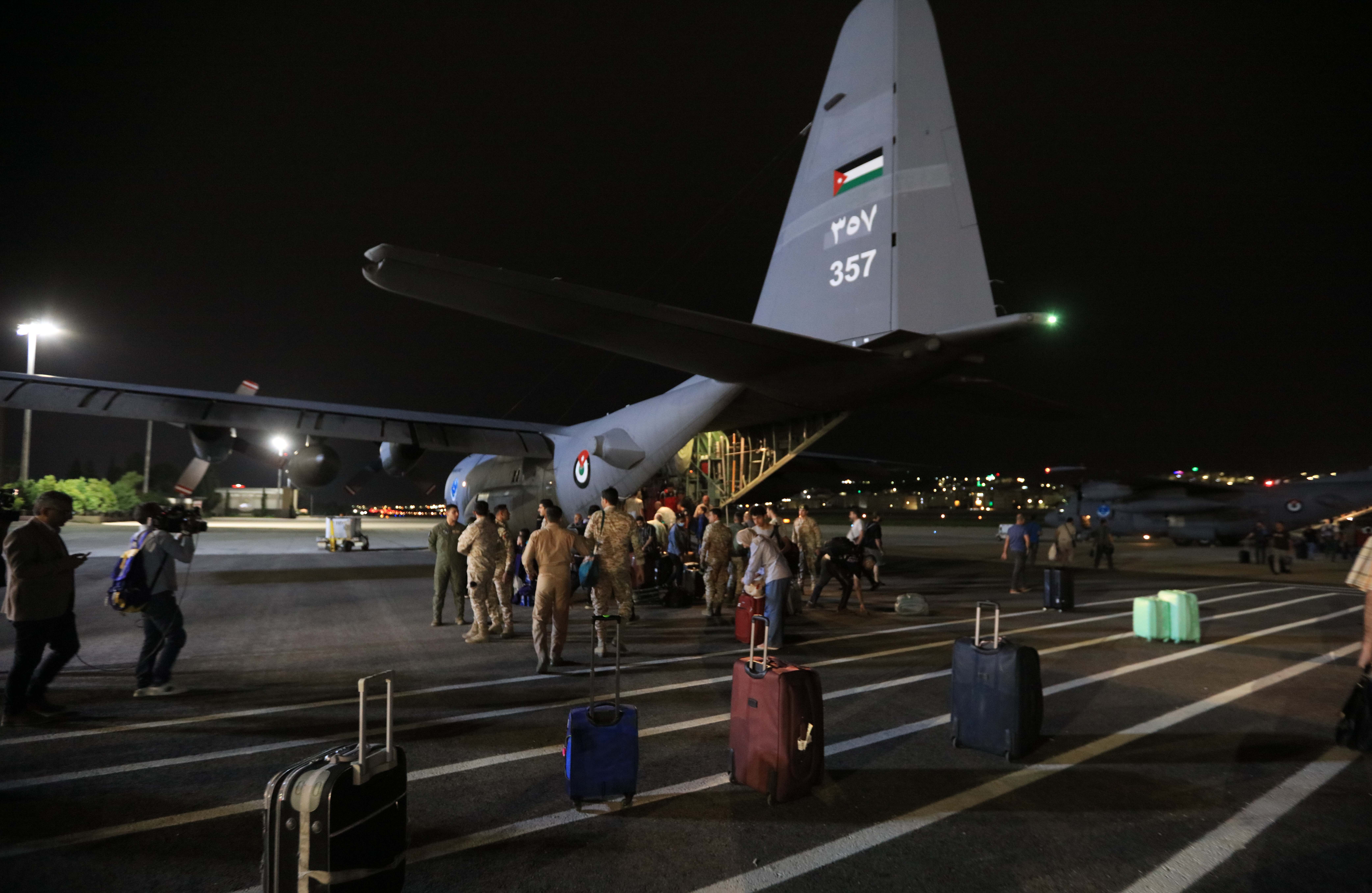
Four military planes carrying 343 citizens of Jordan, Palestine, Iraq, Syria and Germany who were evacuated from Sudan arrive at Marka Military Airport in Amman, Jordan, on 24 April 2023. (Photo: EPA-EFE / Mohammed Ali)
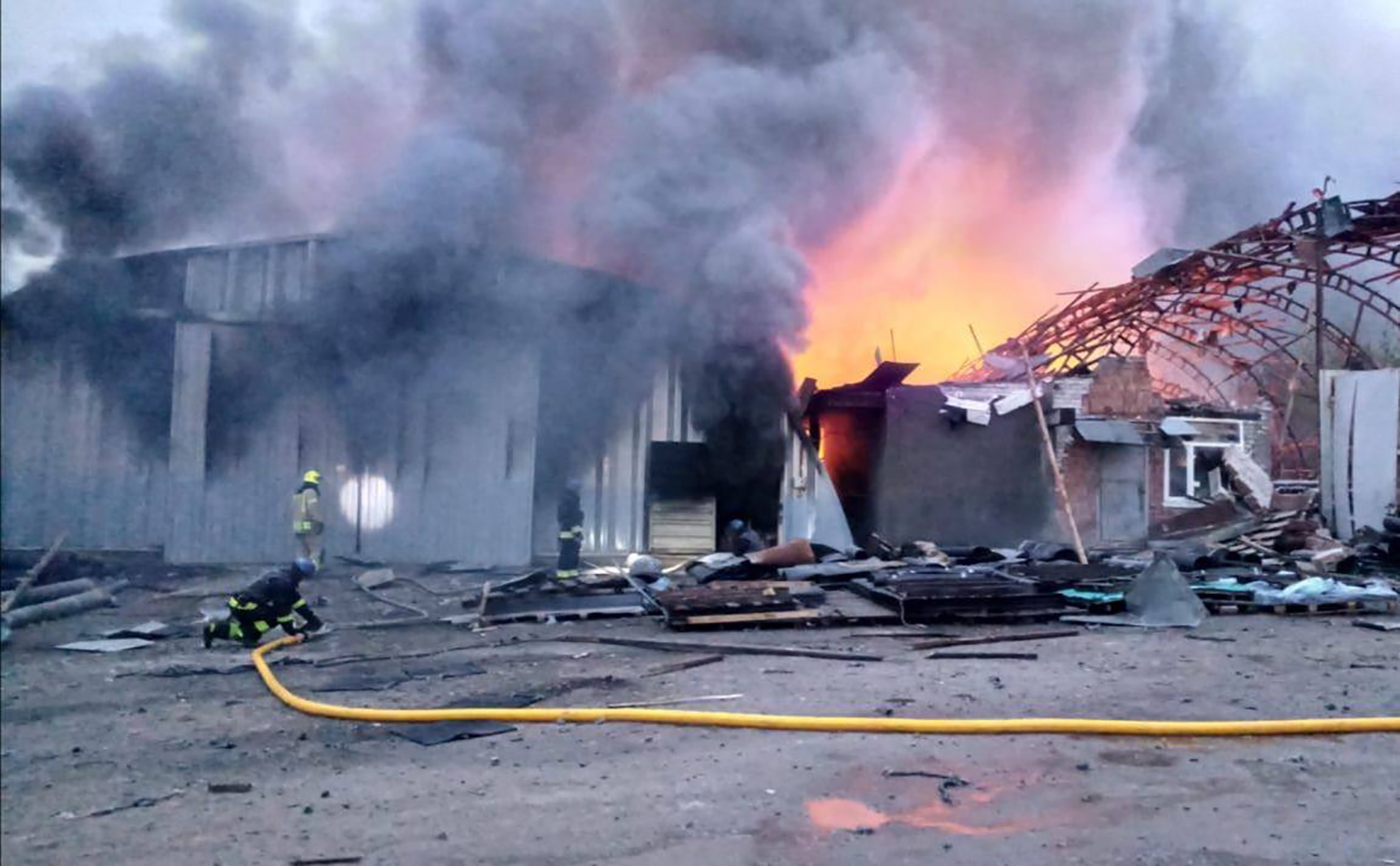
Firefighters extinguish a fire at a facility that was hit by a missile attack in Dnipro, southeastern Ukraine, on 28 April 2023. (Photo: EPA-EFE / Dnipropetrovsk Regional State Administration)
Academi was known two name changes back as Blackwater when it was under the notorious American mercenary entrepreneur Erik Prince and was responsible for atrocities in Iraq.
Academi was also engaged in the Yemen war where a number of its employees were killed. Academi is now part of the Constellis Group, which clusters it together with security companies such as Triple Canopy, Centerra, AMK9 and Olive Group. It operates in a number of African countries including Senegal and South Sudan and is owned by the multibillion-dollar private equity fund Apollo Global Management LLC.
Perhaps some of these companies will take business from Wagner, which is struggling to find new clients, hampered by its track record of human rights abuses and its designation by the US as a transnational criminal organisation.

People who fled the fighting in Sudan wait outside the railway station in Aswan, Egypt, on 3 May 2023. (Photo: EPA-EFE / Khaled Elfiqi)
Whatever happens in Ukraine in the coming weeks will have a major impact on Africa.
Might Prigozhin, the man who would be king on two continents, end up getting squeezed in both places? DM
Phillip Van Niekerk is the editor of Africa Unscrambled, a newsletter covering the continent in a way you won’t read anywhere else. Get unscrambled by signing up right here.

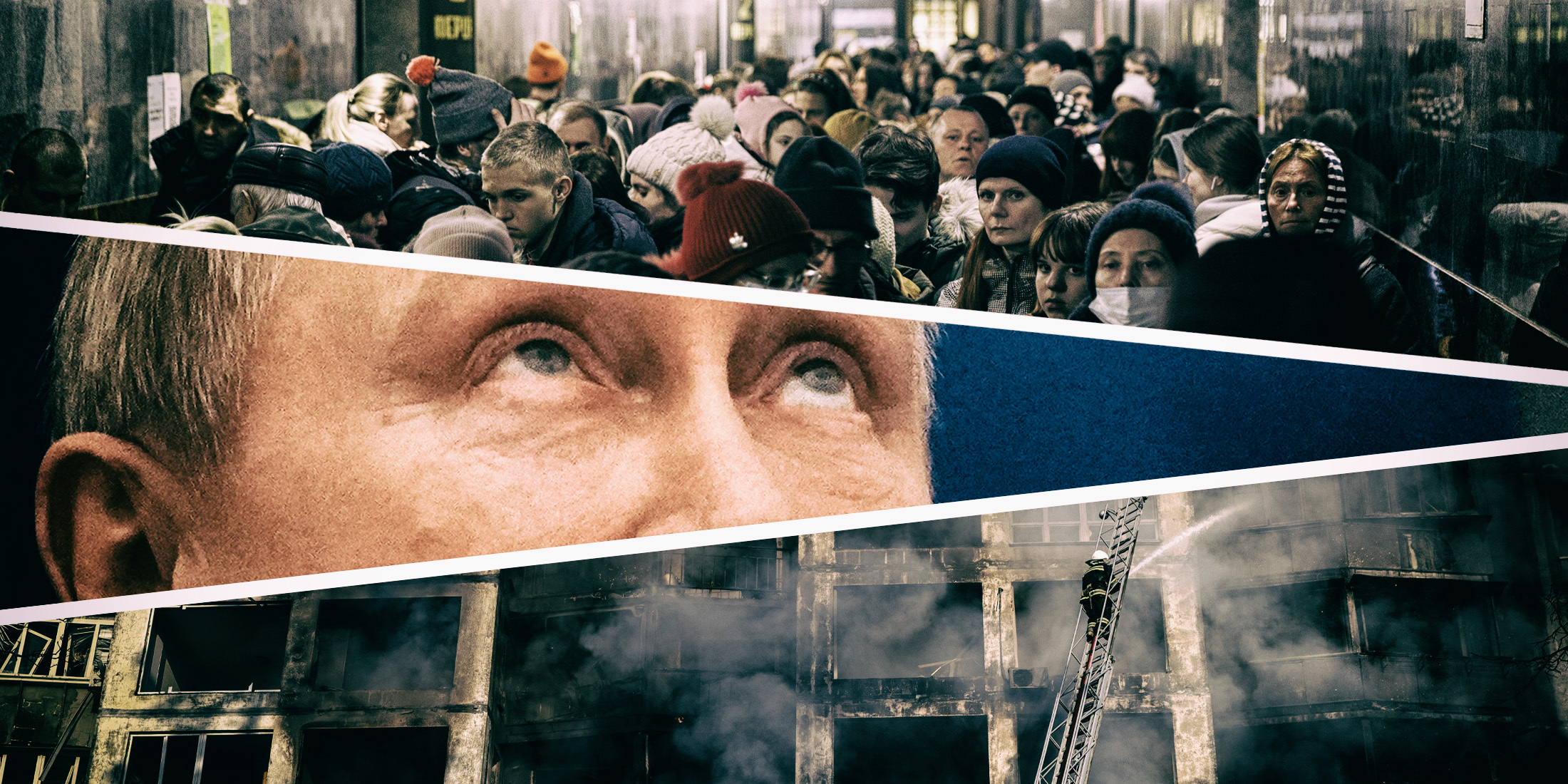
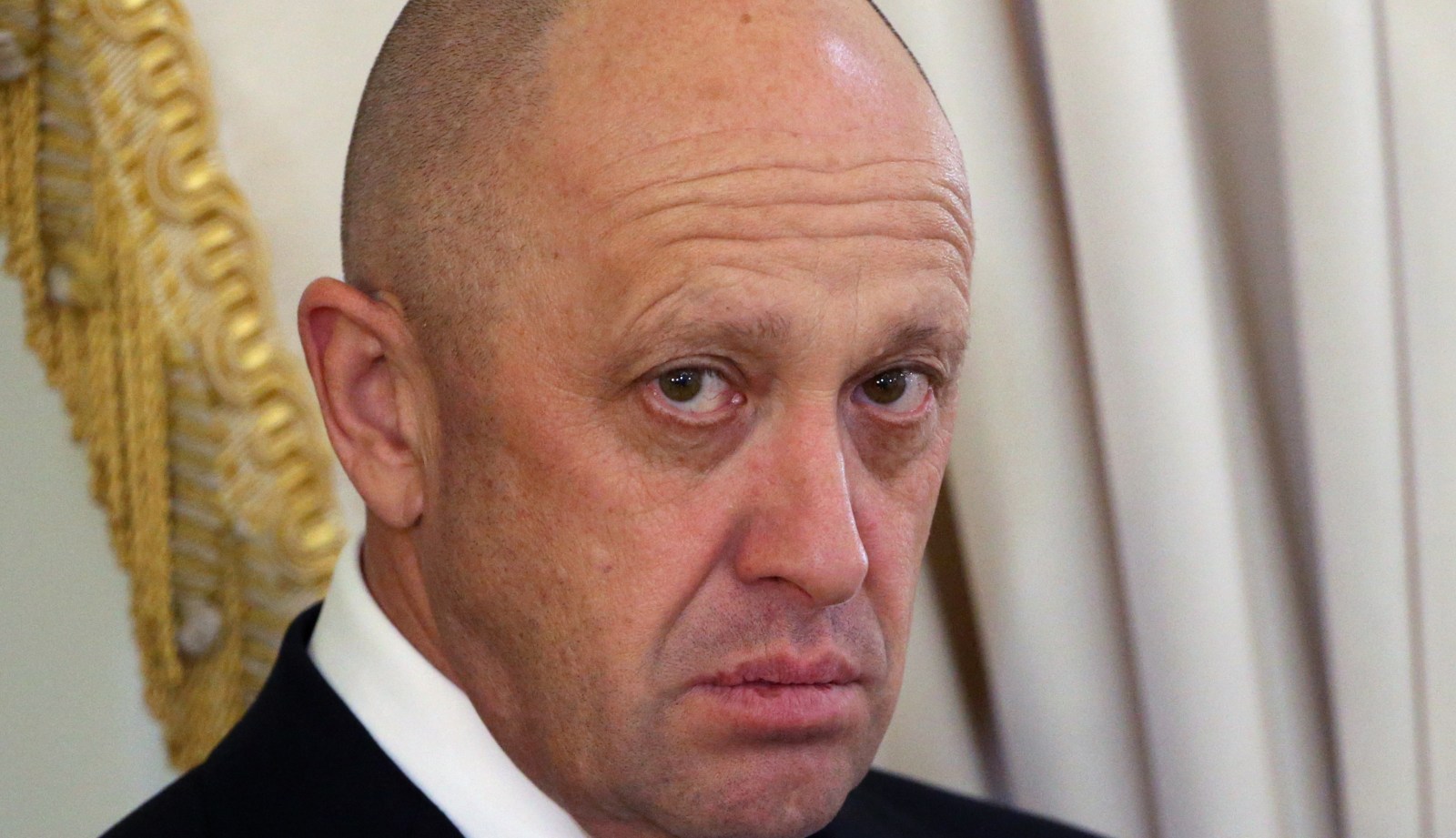
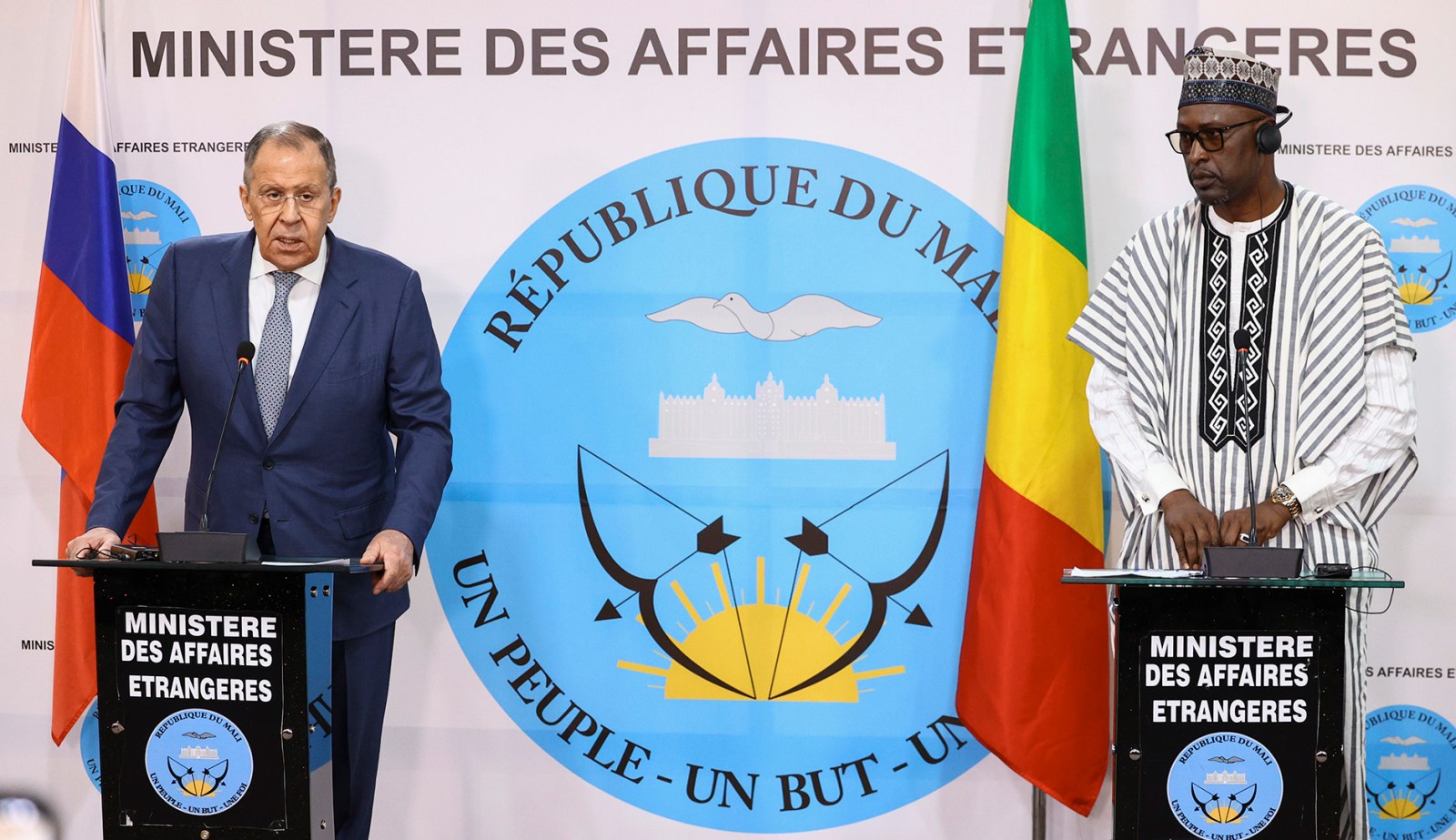
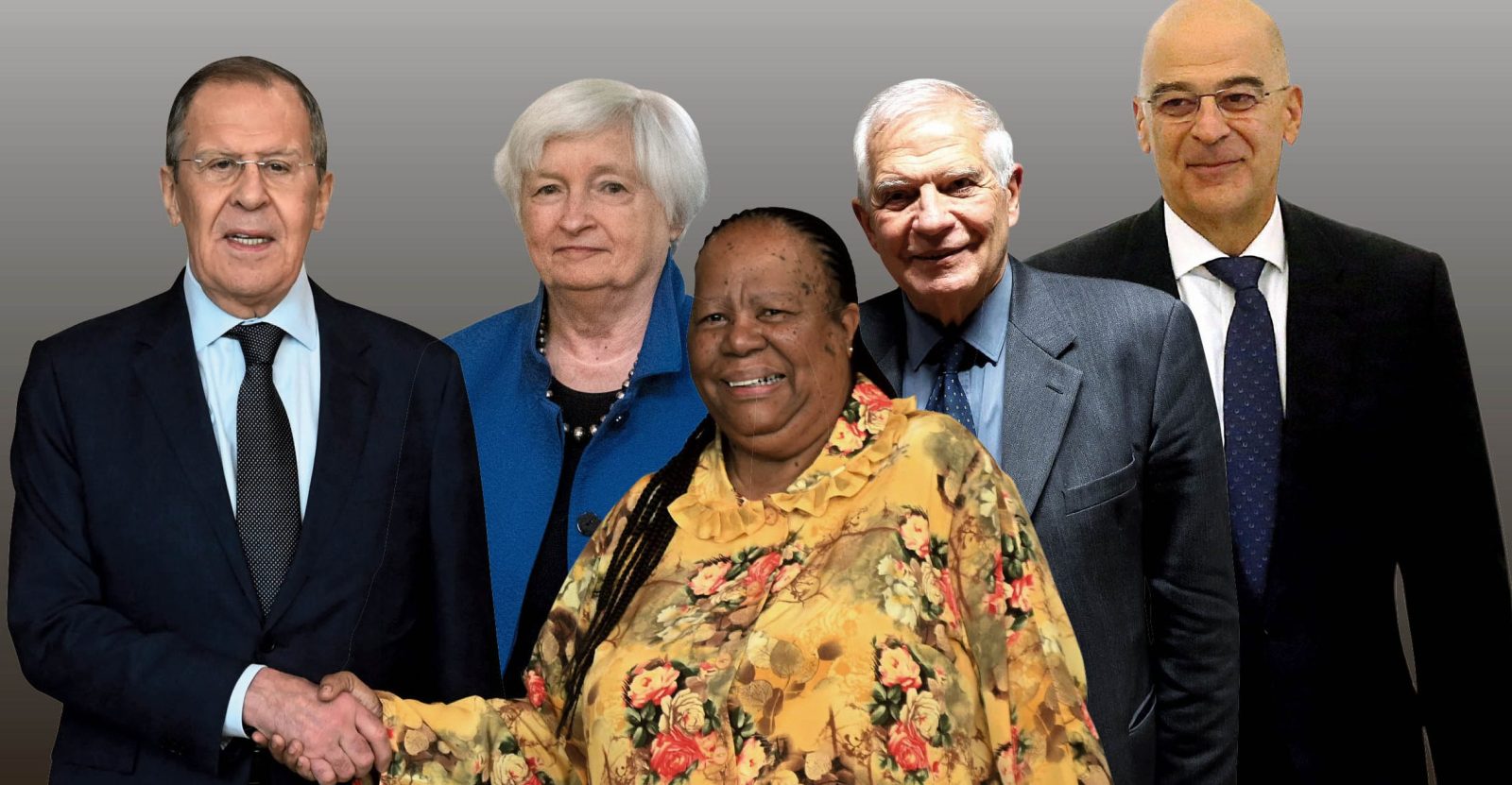
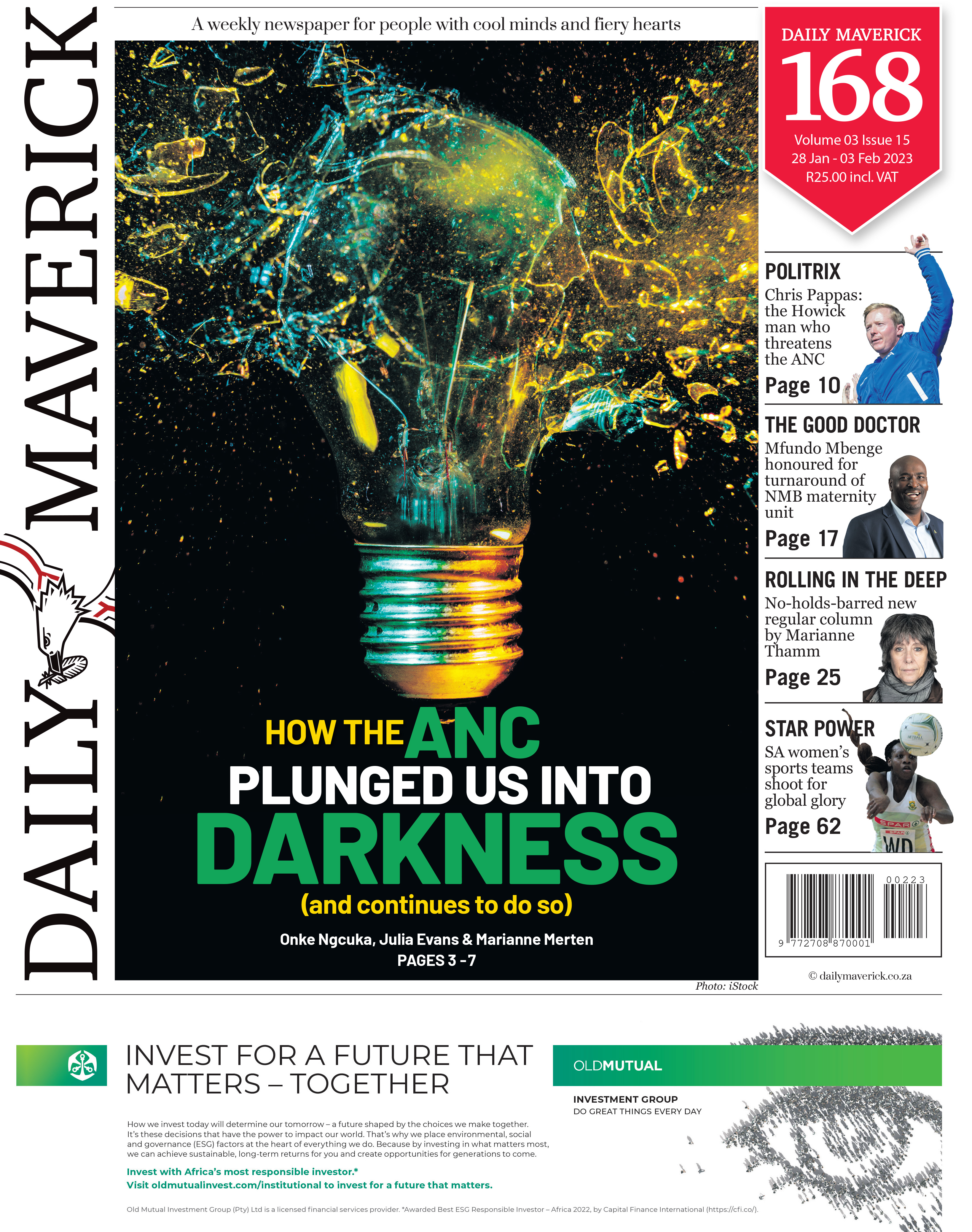
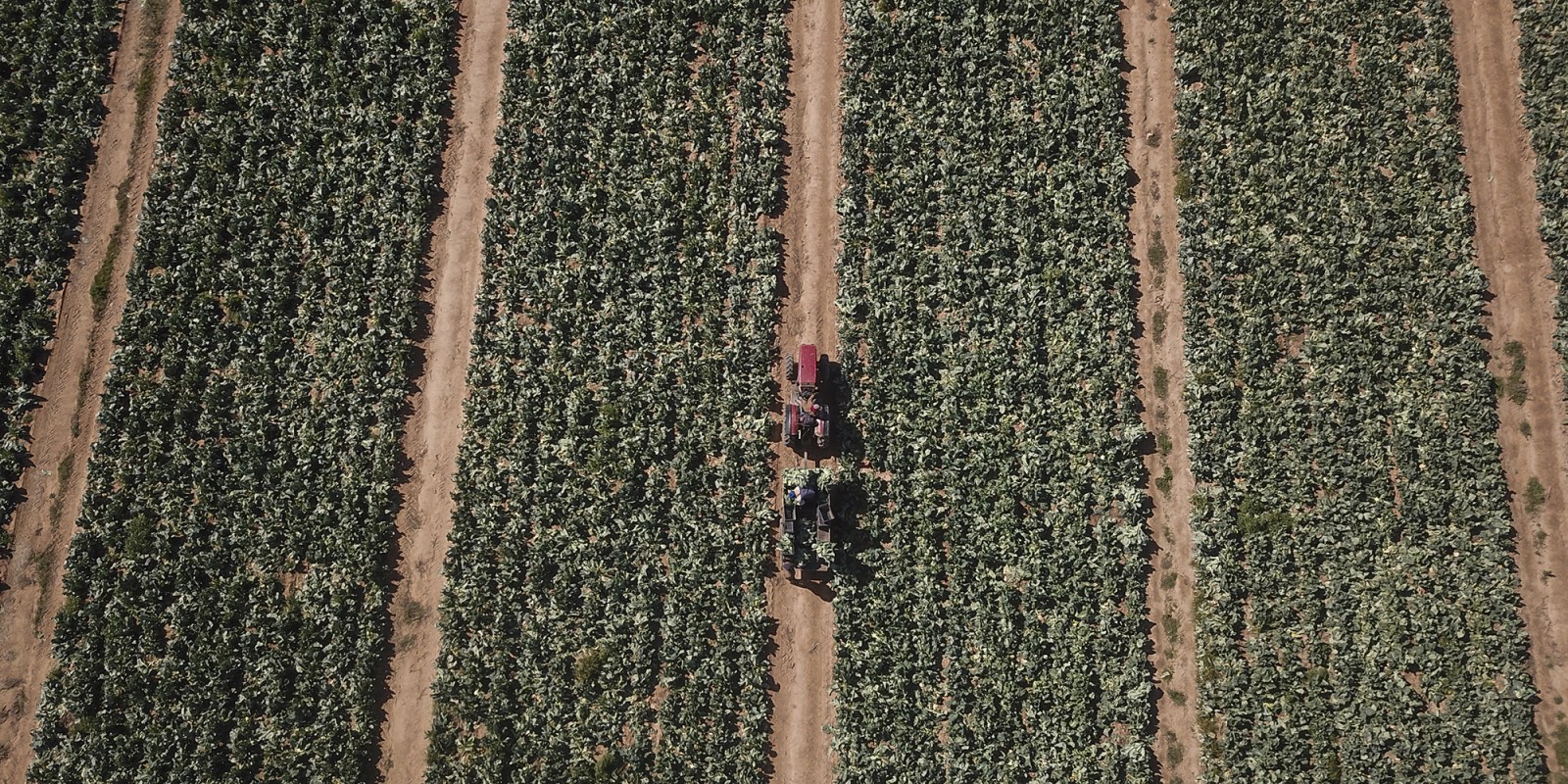
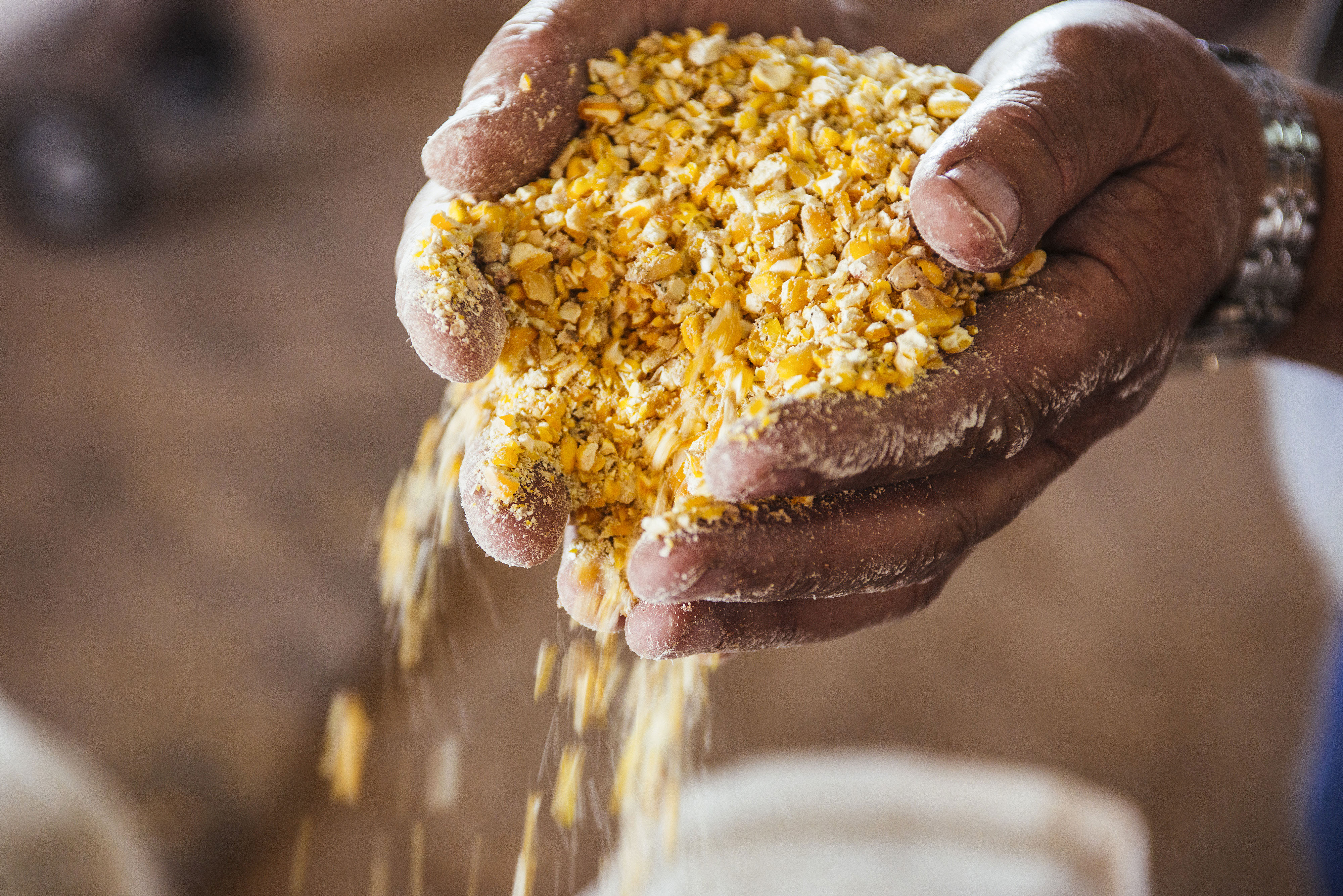
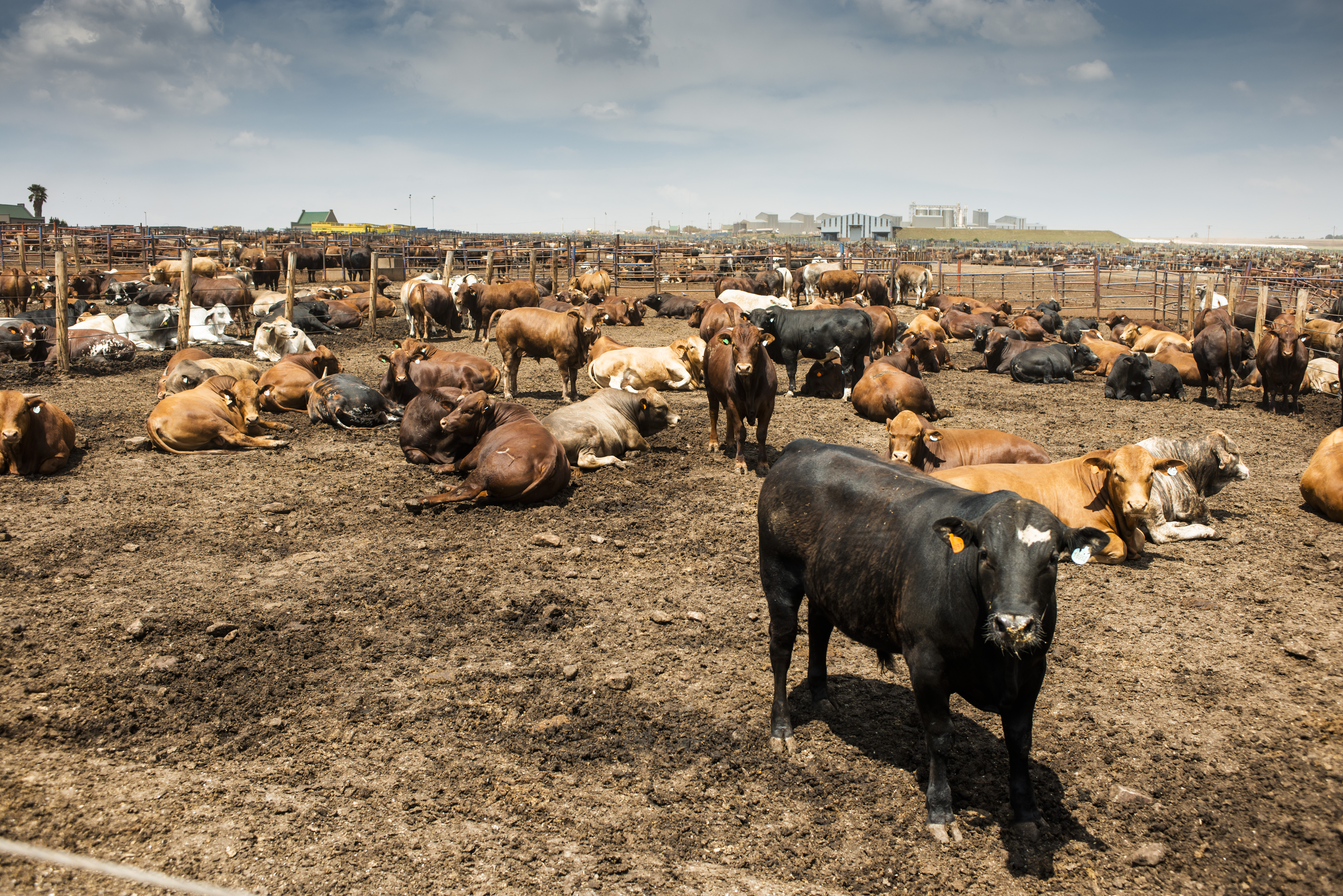
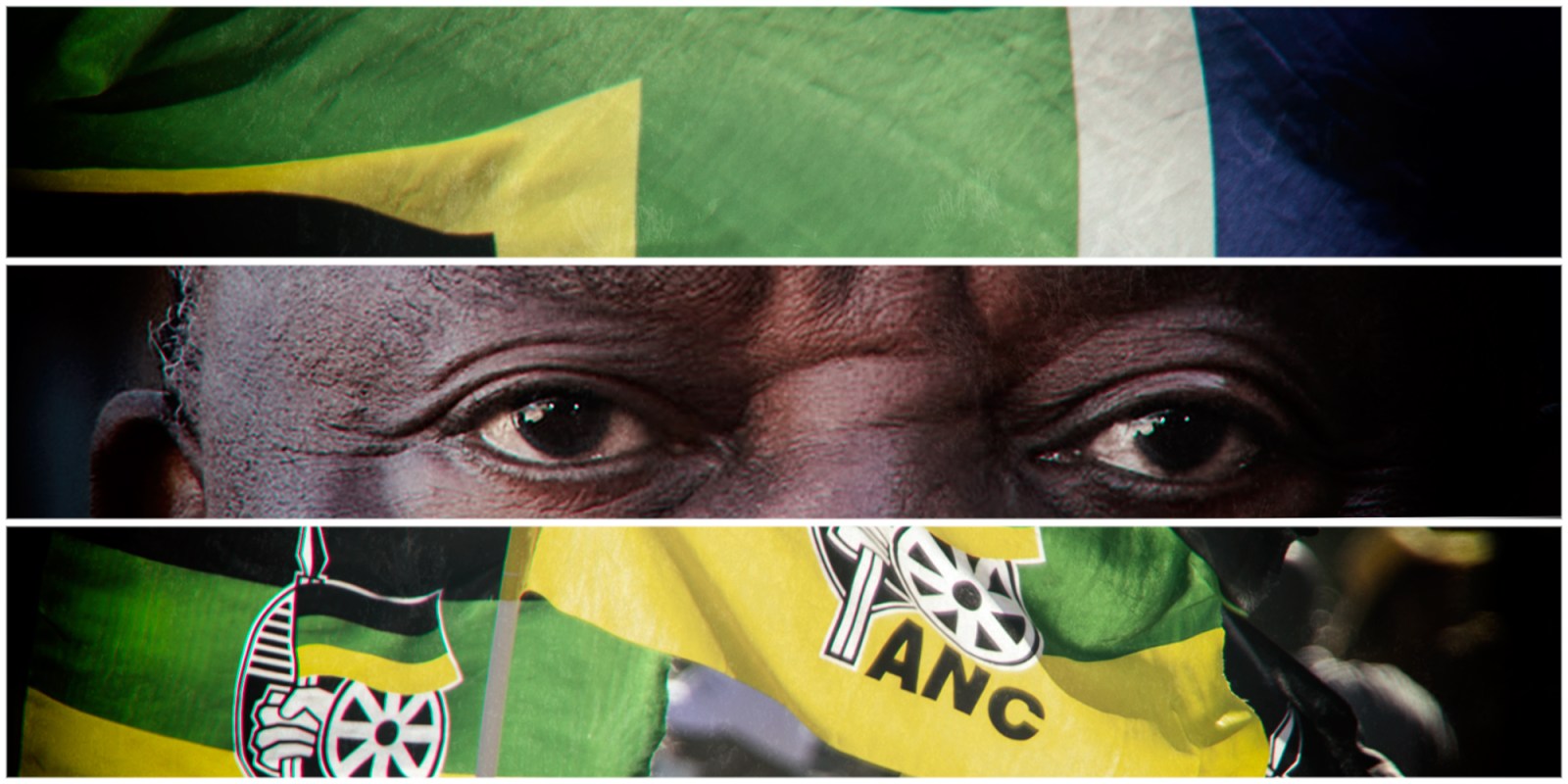

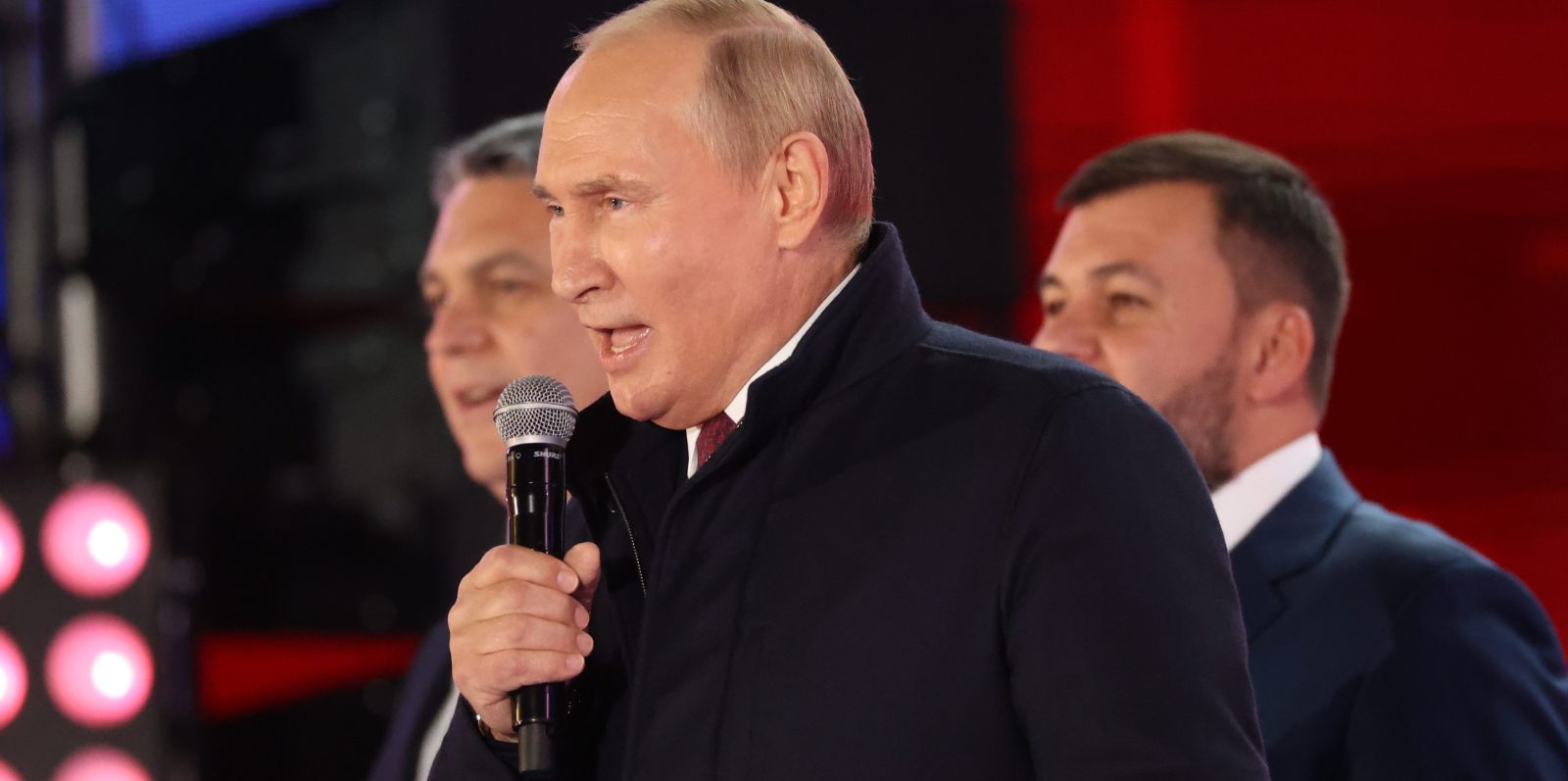

 Become an Insider
Become an Insider